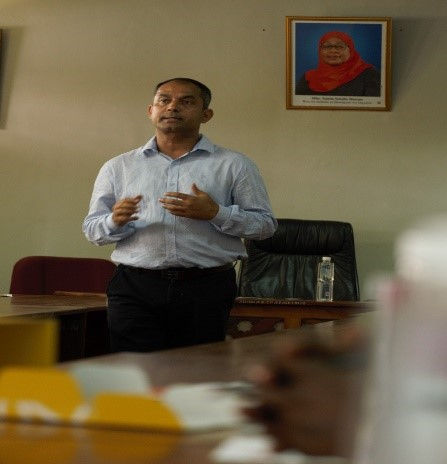Popularizing Community Based Monitoring (CBM) through Academic Sessions
Updated: Feb 16, 2023

We, Narayan Gyawali, Nepal, and Abu Said Md. Juel Miah, Bangladesh, visited Tanzania, as two members of the Communitor OT team, for the Community of Practice's annual event. During the visit to Tanzania, we also visited Mzumbe University and delivered an academic session to the master's level students about the South Asian perspective on community-based monitoring and citizen science. Interacting with university students is always exciting for professionals in the development sector. We used to do it in our home countries and enjoyed engaging with the classroom when we got to connect the students with the real world. The academic session on community-based monitoring at the Department of Development Studies at the Mzumbe University, Morogoro, Tanzania, held on 7 February 2023, provided us with a great experience.
We separately presented two examples of community-based monitoring from Nepal and Bangladesh to the students of Mzumbe University. Although the South Asian context is not similar to that of Tanzania, the students could relate to how different community-based monitoring tools are used in other countries, setting a common goal, empowering citizens, and making the duty bearers accountable for their performances.

Narayan delivered his session by illustrating community-based monitoring in flood resilience and highlighting the role of social capital in disaster risk management with practical examples from his organization, i.e., Lutheran World Relief (LWR). The presentation on monitoring flood vulnerability in Nepal and India provided examples of how community people living on the river basins can reduce the mortality rate induced by severe floods. It surprised the students how community-based monitoring can save lives from disasters. There was great enthusiasm among the participants about the discourse about flood resilience measurements and the role of social capital.

The presentation from Bangladesh on the use of community score card in measuring the performance of the government's effort to deliver food and cash assistance and health services during the COVID-19 pandemic was also eye-opening for the students when they saw how community-based monitoring could capture a country-wide picture on government's performance.
After the presentations, the reflections and questions from the students were thought-provoking. They tried to understand how these presentations were relevant to their country's context. They found that there might be fewer flood situations in their country. However, they might face other disasters, and they can use community-based monitoring in those situations.
The academic sessions at Mzumbe University appeared as a bridge between Asia and Africa in a true sense.



Comments